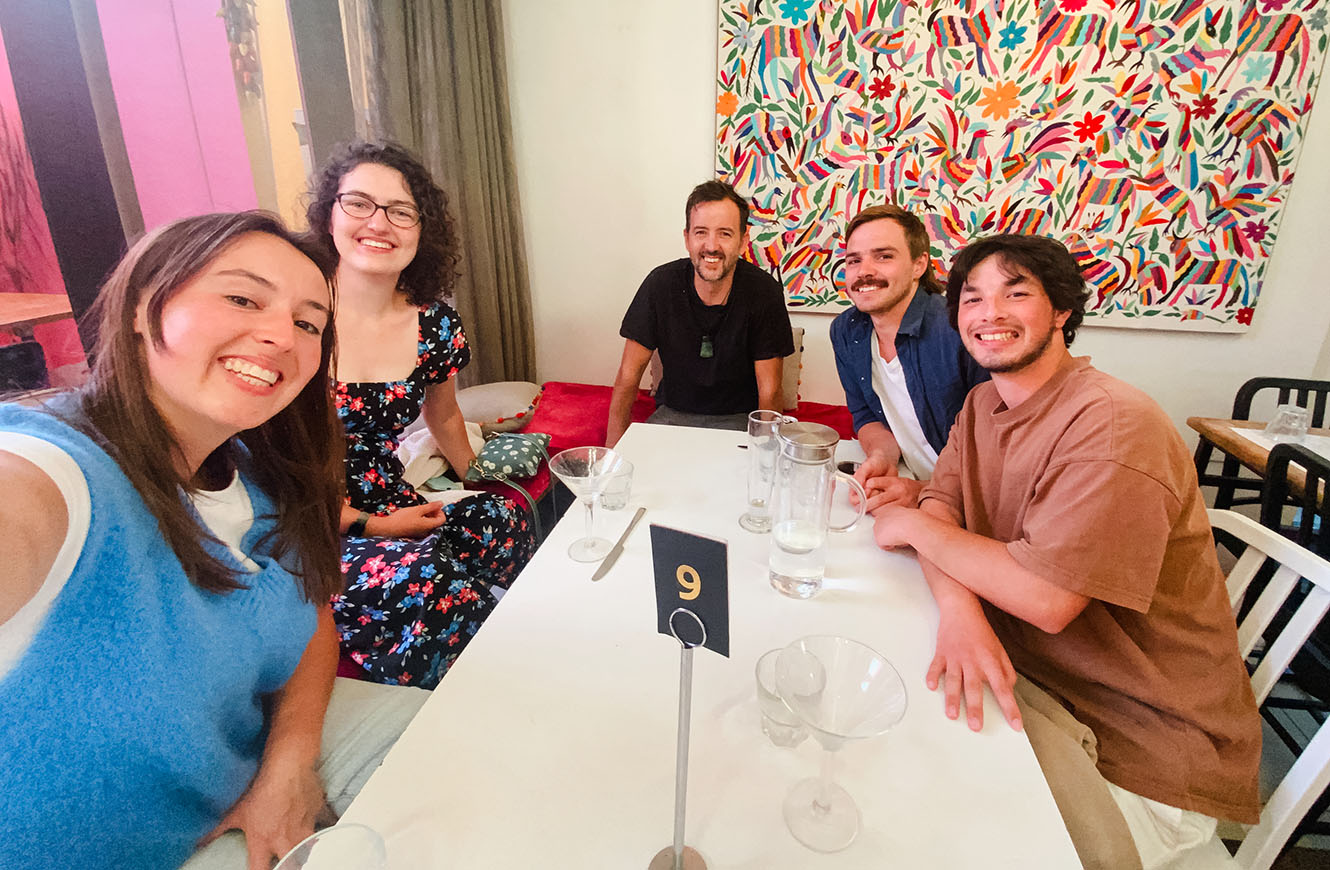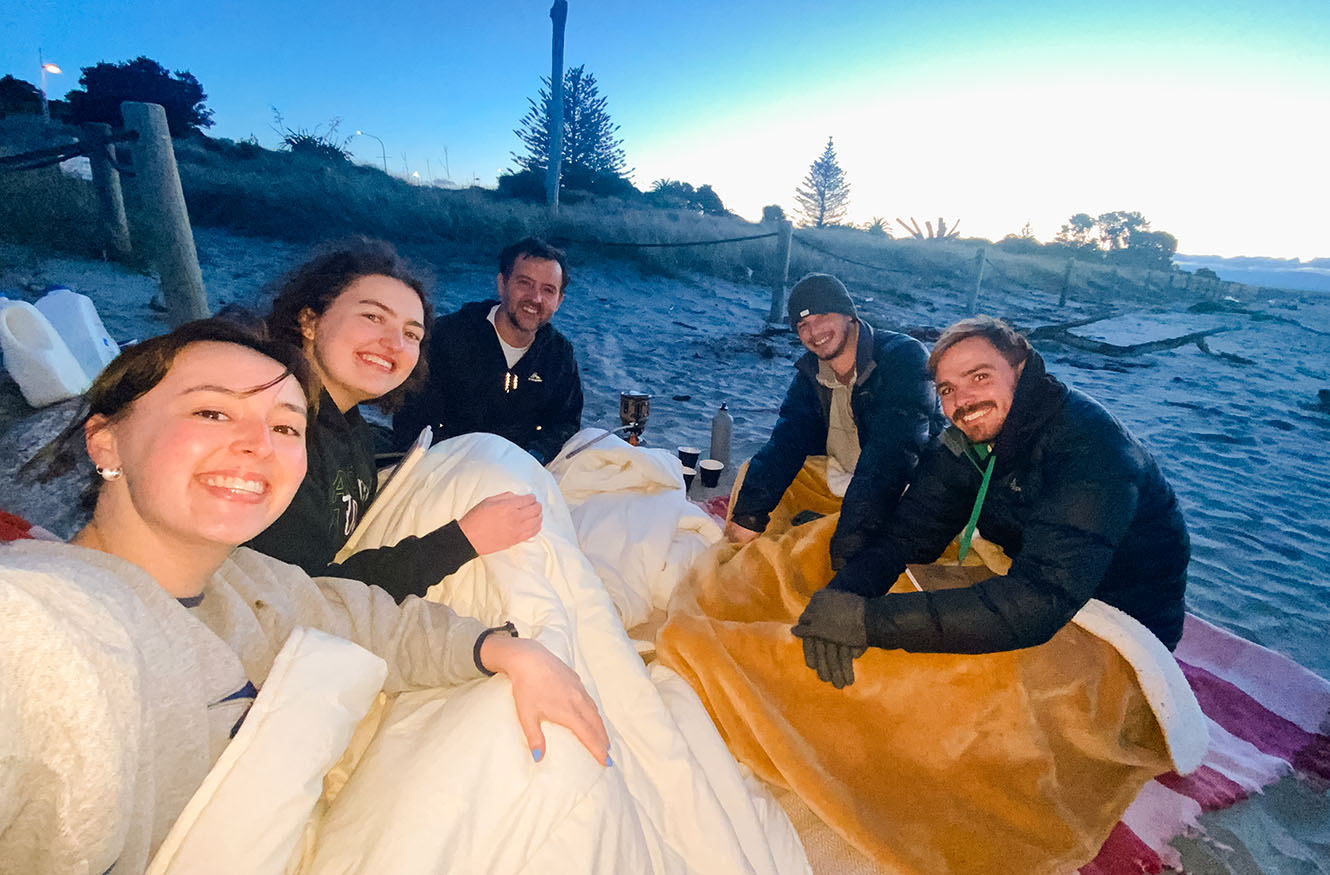
I remember the first time I travelled overseas in my early twenties. I got to ride on a subway for the first time. Hopping on, with my boyish excitement, I sat down in a spare row of bright yellow seats, only to have a stranger sit closely beside me. This made me uncomfortable. There were plenty of other seats he could have sat at without encroaching on my personal space. On the buses in Nelson, people tend to sit alone, occupying both seats until every row has at least one person. Only then do passengers begin to share seats as the bus fills up. So, on this occasion, I shuffled up against the side, looking out the window, and avoided a potentially awkward, intimate conversation.
Since that first adventure, I have had the privilege of visiting multiple countries. As a European Pākehā, I have realised that I place a high value on personal space and privacy and find it strange when someone sits or stands too close to me. The six-foot fences in our neighbourhood would suggest I am not the only one who feels this way, and this is a cultural thing.
With our proud “do-it-yourself” mentality, individualism is often praised in our culture. For many of us, our faith can also be like this, where I can “do-it-myself”. Attend church, read the Bible, pray, repeat. If we are not careful, Christianity can become too cosy and comfortable, and, dare I say it, a bit boring. Yet, as a person who likes to make people squirm with a gentle challenge, Spanky Moore had a dream. To start a “formational community that seeks to grow deep disciples of Jesus and courageous Christian leaders who will go wherever God calls them and do the things others say can’t be done”.
Starting in 2022, “Suter House” was an intentional community where the inhabitants committed to rhythms of prayer, community and mission. Spanky convinced us, a group of five emerging leaders, to embrace the unknown and, without meeting each other, move in together and share this way of life. For us to commit to this ad hoc monastery meant committing to communal prayer (twice daily), eating together, and partaking in local mission.
As a person who loved the idea of Christian unity, this way of life appealed to me. The book of Acts describes how the believers were united, and this was going to be a pocket in Nelson where this truth came into being. However, I quickly discovered that the idea of Christian unity is beautiful, but it can be painful to live out. Sure, it’s easy to appear united when you only see each other once a week or during a short-term ministry. But when you are in each other’s pockets, praying, eating, and missioning together, your idea of unity comes under fire and is refined. In his book Centre Church, Tim Keller writes “the chief way in which we should disciple people (or, if you prefer, to form them spiritually) is through community”. Although this sounds easy, when has formation been easy? Like some of those weird, sci-fi movies where people turn into monsters, it often looks extremely painful. Turning our back on society and dying to individualism so we can live for others, as Christ did, feels like one of these sci-fi movies. It is extremely painful. But in this pain, there is beauty. You begin to see the Body of Christ in action. Sure, the hand may not be like the foot, but they need each other. This does not mean that I only need them so I get what I want or need, but that they need me. I need to turn up and offer myself in the special moments as well as the mundane.
With God, we have been transformed by each other. A lot of our facades have gone, leaving rough edges. But as we pray and serve with each other, these rough edges slowly get smoother as we learn to love with patience and kindness.
As Suter House comes to a close, after four crazy years, can Abbot Spanky be proud of what he started? Did it form Jesus-loving people who are willing to go where God leads? To answer that, ask Mike Jessop, who just got back from Uganda and is already eying up his next adventure. Or Renata van der Wal, who wants to seek justice and equality for women whose voices are not heard. Or the prayer warrior Lilly Downing, who actively seeks out strangers to have a conversation with. Or Josh Munro, who runs a young adult discipleship group and cares deeply for young men on the fringes of society. Or myself, who now accepts God’s call on my life and enjoys the exciting discomfort of a Christian life.
Would I do it again?
Sure, Suter House is probably nothing like what we first imagined when we signed up in blissful ignorance, but God has done a good work in us, and will continue to “carry it on to completion until the day of Jesus Christ”. (Phil 1:6). Would I do it again? Would I recommend it to others? 100%. Nothing has shaped me more than living in a community that intentionally points to Christ. As the Father, Son and Holy Spirit are three in one, may we dwell with them, in community with each other, allowing ourselves to give up our own individuality and become one with and for each other.

Check out other articles in the
series below.
More articles in the
series are to come.
We have invited these writers to share their experiences, ideas and opinions in the hope that these will provoke thought, challenge you to go deeper and inspire you to put your faith into action. These articles should not be taken as the official view of the Nelson Diocese on any particular matter.

I remember the first time I travelled overseas in my early twenties. I got to ride on a subway for the first time. Hopping on, with my boyish excitement, I sat down in a spare row of bright yellow seats, only to have a stranger sit closely beside me. This made me uncomfortable. There were plenty of other seats he could have sat at without encroaching on my personal space. On the buses in Nelson, people tend to sit alone, occupying both seats until every row has at least one person. Only then do passengers begin to share seats as the bus fills up. So, on this occasion, I shuffled up against the side, looking out the window, and avoided a potentially awkward, intimate conversation.
Since that first adventure, I have had the privilege of visiting multiple countries. As a European Pākehā, I have realised that I place a high value on personal space and privacy and find it strange when someone sits or stands too close to me. The six-foot fences in our neighbourhood would suggest I am not the only one who feels this way, and this is a cultural thing.
With our proud “do-it-yourself” mentality, individualism is often praised in our culture. For many of us, our faith can also be like this, where I can “do-it-myself”. Attend church, read the Bible, pray, repeat. If we are not careful, Christianity can become too cosy and comfortable, and, dare I say it, a bit boring. Yet, as a person who likes to make people squirm with a gentle challenge, Spanky Moore had a dream. To start a “formational community that seeks to grow deep disciples of Jesus and courageous Christian leaders who will go wherever God calls them and do the things others say can’t be done”.
Starting in 2022, “Suter House” was an intentional community where the inhabitants committed to rhythms of prayer, community and mission. Spanky convinced us, a group of five emerging leaders, to embrace the unknown and, without meeting each other, move in together and share this way of life. For us to commit to this ad hoc monastery meant committing to communal prayer (twice daily), eating together, and partaking in local mission.
As a person who loved the idea of Christian unity, this way of life appealed to me. The book of Acts describes how the believers were united, and this was going to be a pocket in Nelson where this truth came into being. However, I quickly discovered that the idea of Christian unity is beautiful, but it can be painful to live out. Sure, it’s easy to appear united when you only see each other once a week or during a short-term ministry. But when you are in each other’s pockets, praying, eating, and missioning together, your idea of unity comes under fire and is refined. In his book Centre Church, Tim Keller writes “the chief way in which we should disciple people (or, if you prefer, to form them spiritually) is through community”. Although this sounds easy, when has formation been easy? Like some of those weird, sci-fi movies where people turn into monsters, it often looks extremely painful. Turning our back on society and dying to individualism so we can live for others, as Christ did, feels like one of these sci-fi movies. It is extremely painful. But in this pain, there is beauty. You begin to see the Body of Christ in action. Sure, the hand may not be like the foot, but they need each other. This does not mean that I only need them so I get what I want or need, but that they need me. I need to turn up and offer myself in the special moments as well as the mundane.
With God, we have been transformed by each other. A lot of our facades have gone, leaving rough edges. But as we pray and serve with each other, these rough edges slowly get smoother as we learn to love with patience and kindness.
As Suter House comes to a close, after four crazy years, can Abbot Spanky be proud of what he started? Did it form Jesus-loving people who are willing to go where God leads? To answer that, ask Mike Jessop, who just got back from Uganda and is already eying up his next adventure. Or Renata van der Wal, who wants to seek justice and equality for women whose voices are not heard. Or the prayer warrior Lilly Downing, who actively seeks out strangers to have a conversation with. Or Josh Munro, who runs a young adult discipleship group and cares deeply for young men on the fringes of society. Or myself, who now accepts God’s call on my life and enjoys the exciting discomfort of a Christian life.
Would I do it again?
Sure, Suter House is probably nothing like what we first imagined when we signed up in blissful ignorance, but God has done a good work in us, and will continue to “carry it on to completion until the day of Jesus Christ”. (Phil 1:6). Would I do it again? Would I recommend it to others? 100%. Nothing has shaped me more than living in a community that intentionally points to Christ. As the Father, Son and Holy Spirit are three in one, may we dwell with them, in community with each other, allowing ourselves to give up our own individuality and become one with and for each other.

Check out other articles in the
series below.
More articles in the
series are to come.